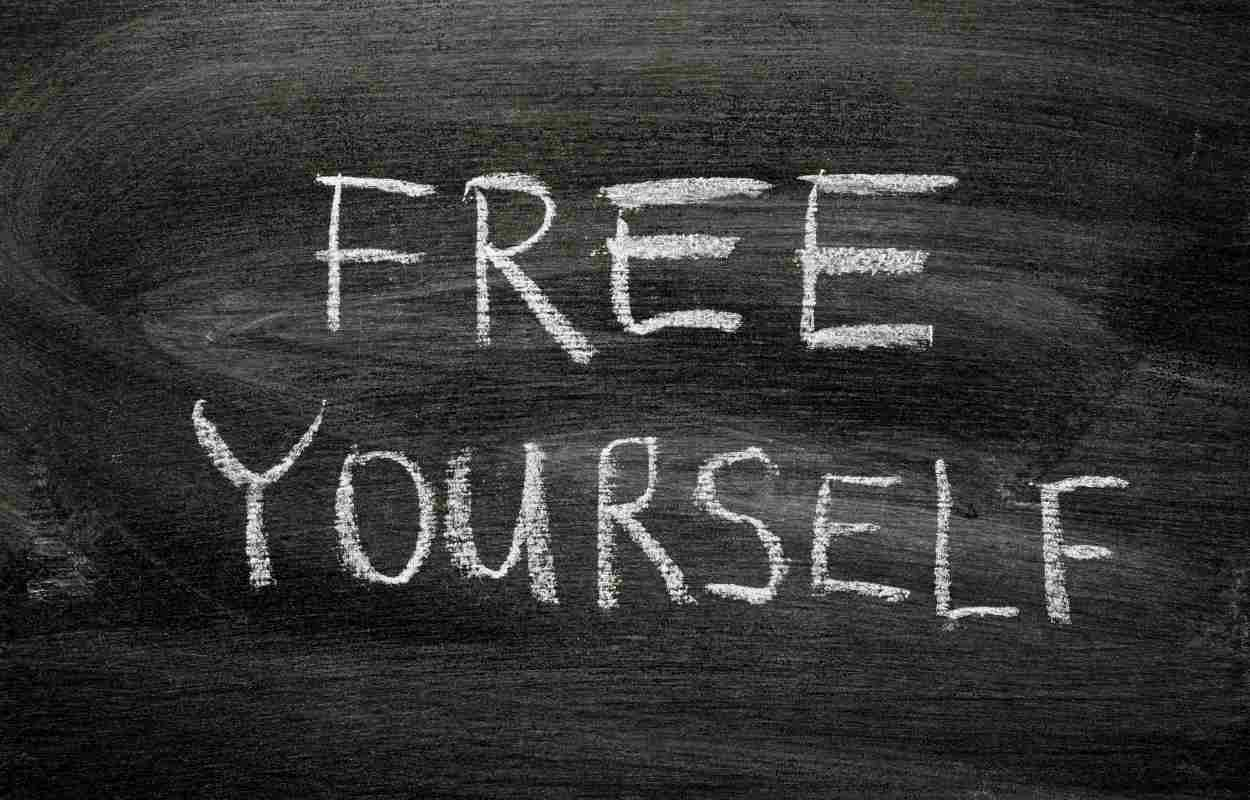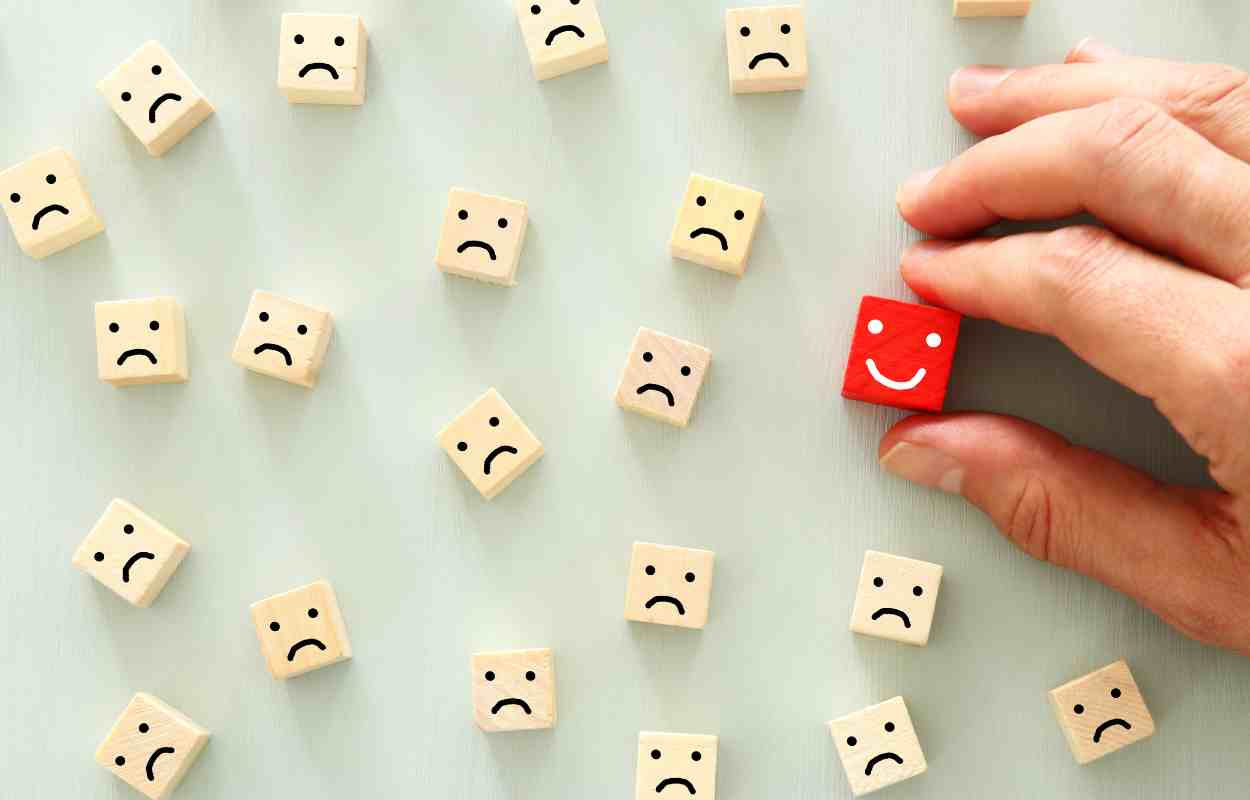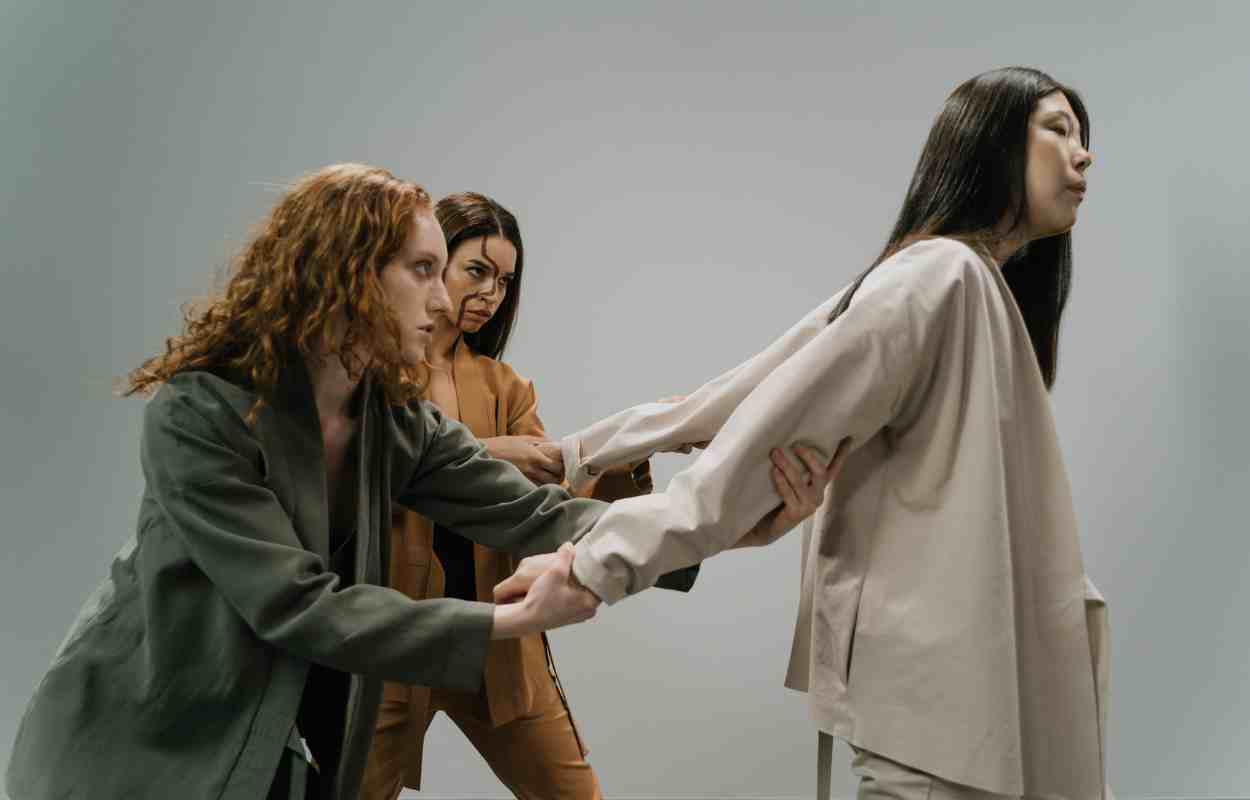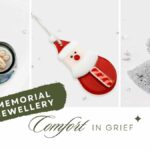
It’s coming to the end of 2023, and losing Michael to sepsis and my friend to cancer, grief has led me on a road of massive self-reflection in 2023. I continue to self-reflect, but some of the biggest realisations are happening as a result of having the rug pulled from under me.
Seeing a local healer/therapist because I didn’t know how I was going to get work or more business to be able to pay for my home or my bills after Mike’s passing, I had to delve deep into why, over 40 years of my life, I have felt anxious and responsible for the wellbeing of others, often to the detriment of my own wellbeing. This responsibility has had far-reaching outcomes, including:
- Feeling the need to fill any quiet space when others are uncomfortable when meeting them for coffee or lunch
- Holding myself back on every single level, from money to purpose to relationships
- To over-give as a sense of identity meant people only saw me as the giver instead of the whole of me.
- And in the past, guilt for not being there for my sister after my dad died or leaving my mum after my dad died to take care of my own needs
- Caring more about other people’s needs than my own
I’ve primarily been working through mother issues this year. Psychological damage that occurred to me due to a very toxic upbringing. I discovered through some major inner child work that since I was born, my mother felt that my role was to please her and that I was there to rescue her; even as a child, that was my job. I learned over a long, slow, passive-aggressive childhood experience of manipulation, guilt-tripping, and blame to think that if someone is hurting, it was my fault; if someone wasn’t happy, it was my fault. This was because I was taught that I was rewarded with smiles, gifts, and food if I did what my mother wanted, but if I did not, and the hardest part being, if I dared to shine, be successful, and have lovely friendships, I would receive a number of toxic parenting manipulation methods that impacted me into adulthood.
I didn’t realise this was one of the things holding me back in life. I always wondered why I felt the way I did. And like many, I received a psychologically damaging childhood that was more the slow drip drip drip experience that, in all honesty, may have well been harder than if I was beaten regularly.
Taught To Be A Rescuer

Being led to believe my role was to rescue my mother, and in turn I had to have challenges, struggle, and suffer in my life so my mother would accept me and rescue me back, has been an eye-opening moment this year.
Knowing looking back into my family line, which may go back a long, long time, further than this lifetime, a history of deep, intense attachment to struggle and suffering. The need for drama and problems to feel alive. If we don’t recognise these issues, we can never change them and instead perpetuate them and carry them on if we have children too.
The fact is, as a child, my role was not to be responsible for my mother, my father, my sister, or anyone else. My role as a child should have been to be innocent, playful, lighthearted, and honest, but instead I learned that giving to others, often more than I received back, was an illusionary way to feel good enough. If I followed my truths and my instincts, questioned, and succeeded, I was not loved or liked, and I was certainly not accepted.
Feeling responsible for others seeps into so many areas, including work. If you have clients, you feel responsible for their progress instead of just doing the best job you can and letting them go at the end of it. You feel anxious and overwhelmed if a job or work is not ‘perfect’ because you feel responsible for the recipient’s response to what you create or do. Instead of just doing what you can, being happy with all that you did, and valuing your work, you don’t recognise that how other people respond or react is none of your business; instead, you take everything personally.
Taught To Be Rescued Others
When we are taught that we are to rescue others, we are also often taught that we are to be rescued by others and that we are incapable of rescuing ourselves or taking responsibility for our own wellbeing. I wasn’t taught emotional intelligence growing up; I was taught you get your wellbeing, your sense of purpose, and your sense of self from others. By being programmed into the belief that being who we are is not enough, we learn that if we just become the person the other person needs us to be, we are in some way lovable and acceptable. So we can create a life where we do not feel we are of value and make it so we can never own our own power; we give our power away to other people. We do this by attracting partners who want to control us, or we attract partners who have the need to overgive also and so thereby rescuing us. We can create a symbiotic relationship with those we love. This doesn’t mean it was ever wrong, but that we both fulfilled our own unconscious needs to play a role we were programmed to play. The rescuer-victim dynamic often comes together in relationships until we own our power and drop those roles.
I created so many experiences where I felt lacking and unable to care for myself, sometimes in the most basic of ways. I often felt needy for love or money because I didn’t know how to provide for myself. And for most of my adult life, I allowed myself to be rescued. I did not know about my own power until I started looking into my childhood and the power I gave away at an early age.
And becoming aware that, up until recently, I allowed myself to remain small, poor, and unable to care for myself because that is what made my mother comfortable was a real breakthrough for me. Now I slowly un-peel the layers of protection so I can now stand on my own two feet, so to speak. An ongoing journey.
Establishing Boundaries

And as you enter adulthood, your ageing parents may expect you to do things for them; they are more than capable of doing it themselves, but they are so used to you taking responsibility for them and rescuing them that they try to guilt-trip you into doing it. And if you finally create boundaries, you will find that parent has a full-on teenage hissy fit, crying and upset because you didn’t do what they wanted. This happened to me recently over a letter I was asked to write, and I chose not to and said no.
It’s an interesting dynamic to change, and it takes real commitment to keep boundaries up, say no, and follow through on what’s best for you, not what’s best for them. You may find that even if your parent is not here anymore, you set yourself up for other people in your life to mimic the behaviour of that parent. Your boss or partner expects you to rescue them or to overwork beyond your limits. Life keeps giving us examples like this until we learn and say no.
And what I have found since saying no, not indulging like I did, and releasing all responsibility for those people, is that the relationship changes. Once they realise that they can no longer manipulate you, even if it’s unconscious on their part, they will want to talk less, their gifts will become smaller, they will stop asking how your life is, and slowly but surely, things will shift hugely.
When we are no longer responsible for others, we learn who our true friends are or if our family members genuinely care for us. Those that do will adapt to the new boundaries put in place; others may never change because they have their own programmes from their parents that trained them into their own toxic adult behaviour, but we can change the future by changing our own patterns and behaviours now.
The hardest awareness so far was that those who were supposed to love me wanted me to fail. They needed me to be ‘lesser than’, for to shine or succeed meant they would feel insecure and bitter. I saw how they saw those successful or wealthy as being viewed with envy, resentment, and bitterness, and because of this, I interpreted this as saying that I must make sure I am never successful or wealthy, for if I am, she will not accept me or love me. I now realise I can no longer hold myself on that lower pedestal she has me on, and it is time to free myself of responsibility for her wellbeing. I am not a child, and my inner child needs my love and care now, as she never received it growing up.
What is your experience of taking responsibility for others?
And how has it affected your adult life?
LATEST POSTS
- The Shock Of The New
 Experiencing profound life changes, such as loss and relocation, can feel like a crash. Embracing these shocks offers opportunities for transformation and personal growth amid grief and uncertainty.
Experiencing profound life changes, such as loss and relocation, can feel like a crash. Embracing these shocks offers opportunities for transformation and personal growth amid grief and uncertainty. - Memorial Jewellery: Finding Comfort in Grief After Losing a Loved One
 Discover how memorial jewellery, like ashes into rings or fingerprint pendants, provides a comforting connection to lost loved ones. Explore how these keepsakes offer peace, solace, and a sense of closeness, especially for those grieving suffering from mental health issues.
Discover how memorial jewellery, like ashes into rings or fingerprint pendants, provides a comforting connection to lost loved ones. Explore how these keepsakes offer peace, solace, and a sense of closeness, especially for those grieving suffering from mental health issues. - How To Embrace UncertaintyIt’s okay not to know. Society trains us from an early age to know. Know about anything and everything. And if we don’t know how something works, we are taught to find out. If we don’t know how to do anything, we are taught to find out. We are never taught to sit in the…
- Are You Lying To Yourself About Your Desires?
 It can be very easy to ‘want’ and ‘desire’ what we think we ‘ought to’ desire. We may even think these are our genuine wants, but what if they are not? What if we are kidding ourselves? Let me give you some examples: ‘I want a successful healing business’ ‘I want to be a bestselling…
It can be very easy to ‘want’ and ‘desire’ what we think we ‘ought to’ desire. We may even think these are our genuine wants, but what if they are not? What if we are kidding ourselves? Let me give you some examples: ‘I want a successful healing business’ ‘I want to be a bestselling… - Hate Anxiety? Love It InsteadThe Tiger of emotion or fear only bites when you run from it or try to cage it. Set it free.~ Kari Hohne, Cafe Au Soul I’m in my 48th year on planet Earth, and anxiety has been something I have spoken and written about a lot over the course of this blog (and in…
